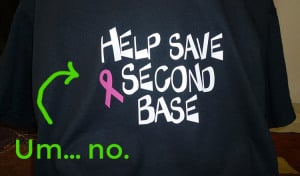A lot of folks aren’t happy about Democratic presidential candidate Bernie Sanders’ proposal to fund Medicare for everyone, support tuition-free public colleges, increase spending on infrastructure, and expand Social Security to help low-income Americans.
They’re upset that the people who support Sanders, especially poor folks, are asking for so much “free stuff.”
And as Bill O’Reilly recently claimed, they believe that these programs can’t be funded without taking away people’s personal assets.
In actuality, these programs could easily be funded by reducing the billions of dollars in handouts that we already give to the 1% every year.
For example, did you know that annually, the American government gives away over 7 billion dollars just for bonuses to already ridiculously rich CEOs of Fortune 500 companies?
Not for their salaries. Just for their bonuses.
Welcome to the world of corporate welfare.
So Just What Is Corporate Welfare?
The US government receives billions of dollars in taxes from American citizens every year.
Some of this money is given to low-income families through government assistance programs. And a lot of people don’t like that. They don’t want “their” money being given to someone else.
But what would these same people say if they knew that even more of their taxpayer dollars were being handed over to the world’s richest and most powerful corporations?
Corporate welfare is defined as “government support or subsidy of private business, such as by tax incentives.” In laymen’s terms, this means the government giving financial aid to corporations.
Corporate welfare can take various forms. Sometimes subsidies come through direct payments, sometimes through preferential tax treatment, and sometimes through insurance policies backed by the federal government.
Multi-billion dollar industries like the oil and gas industry receive billions of dollars worth of subsidies from taxpayers each year. Simply put, that means that the government collects money from individual citizens and gives it to large corporations.
And to safeguard the status quo, many of those very corporations spend exorbitant amounts of money to pay for lobbyists and political campaigns that will ensure that their subsidies remain in place.
The American people deserve to know: How much corporate welfare is the government actually doling out? How does this compare to the money being spent on government assistance for low-income people?
Is Welfare Bad?
Before we answer these questions, we must consider what welfare means for different communities.
This article by no means intends to characterize the term “welfare” as something inherently bad.
Government assistance programs for Americans living in poverty or with disabilities are part of the backbone of our society. They are one small step towards leveling the playing field for people who were not born into middle-class, able-bodied, white-privileged families.
Without government-subsidized welfare programs like SNAP/Food Stamps and TANF, millions of American citizens would be living in far worse poverty and the economy would suffer.
What doesn’t sit right with me is the fact that politicians and their corporate backers are more than happy to give excessive amounts of money to unfathomably wealthy individuals and corporations, but they sneer at the idea of offering help to the poor family next door.
There is a cult of wealth alive and well in the United States – a cult that indoctrinates veneration of the rich and famous (can anything else explain the massive worship of the Kardashians?).
It is a cult that tells us that the rich, powerful people – like those who run major corporations – are inherently “better” and more “deserving” of special privileges or government help because they’ve “earned it.”
What this fallacy declines to recognize is that most low-income people have also worked their entire lives for the betterment of their families.
They just may not have been born into the same level of privilege or given the same opportunities as the Fortune 500.
How can our society, with a clear conscience, condone government forfeiture of billions of dollars via corporate welfare (through creating tax loopholes, doling out direct payments to major corporations, and so on) while condemning government assistance for people who are actually struggling to make ends meet?
Fact #1: The Cost of Corporate Welfare Is Higher Than the Cost of Funding the Safety Net
Right wing pundits and politicians love making the argument that the American government spends “too much” on SNAP/Food Stamps each year. What they don’t like to mention is how beneficial to our society federal assistance programs truly are.
US Census Bureau data shows that in 2014, our government spent 74 billion dollars on Food Stamps (a number which is significantly lower than in previous years, due to the economic recovery). And subsequently, 4.7 million people were lifted out of poverty (more than had been in previous years).
Statistics show that welfare programs like SNAP/Food Stamps, the Earned Income Tax Credit (EITC), Medicaid, and housing assistance not only help families emerge from poverty, but they actually dramatically improve our economy.
What no one ever mentions is the cost of corporate welfare to taxpaying citizens and our economy.
Our government spends a whopping 100-150 billion dollars every single year on subsidizing major corporations.
This includes cash payments to farmers, overseas promotion of US products, fossil fuel subsidies, business incentives (at the state, county, and city levels), interest rate subsidies for banks, retirement fund bank fees, individual giveaways, money spent on overpriced, above-market-value medications, corporate tax subsidies, corporate tax haven-caused revenue loss, and more.
And what about the average taxpayer? How much do we have pay in order to fund government assistance programs for the poor versus payments to corporations?
Research shows that the average taxpayer pays about $36 annually to help fund the Food Stamp program. This, plus another $6 for all other social safety net programs combined.
Compare that to the $6000 that the average family pays for corporate welfare.
Shocked?
So are most people who find out these staggering numbers.
But then again, most people aren’t even aware that their tax dollars are subsidizing the richest companies in the world. They’re too concerned with complaining about Uncle Sam taking their money and giving it to “lazy” (which, for so many folks in our deeply racist society, actually means “Black”) people.
Fact #2: Corporate Welfare Doesn’t Actually Create Jobs – It Just Makes the Rich Even Richer
Many conservatives justify corporate welfare with the claim that it creates jobs and advances economic development.
In reality, it’s just about as effective as “trickle-down” economics – that is, a complete joke.
The major outcome of corporate welfare amounts to increased profits for corporations and bigger bonuses for CEOs – not the creation of jobs or raises for workers.
Reports show that even when corporate subsidies do result in the creation of jobs, those jobs come with a heavy price tag.
A study from the corporate and government accountability resource center Good Jobs First shows that each job created cost local governments and taxpayers at least 456 thousand dollars.
That’s a lot of money spent, all to create one single job.
Fact #3: Yes, the Government Taxes Corporations – And No, It Doesn’t Come Close to Hurting Them
Reports from the Government Accountability Office (GAO) have proven that the government actually spends just as much on corporate tax expenditures (exceptions, deductions, credits, preferential tax rates) as they make from tax collection.
This essentially means that even though the US government taxes wealthy corporations, they give just as much money back to them through subsidies and tax breaks.
It also means that major US corporations often pay zero dollars in federal income taxes and only half of the statutory tax rate.
In some cases, the government actually gives them more back, creating a negative income tax rate.
Take for example billion-dollar empires such as Boeing, General Electric, Priceline.com, and Verizon, who, along with 22 other major corporations, paid negative income tax rates over the last five years, although they made profits of over $170 billion.
A new report from DC advocacy group Citizens for Tax Justice details how these companies can get away with paying effectively nothing while making mega profits.
Over five years, the amount of tax breaks given to the 288 profitable corporations included in the study was $362 billion.
That’s $362 billions of dollars that could have gone towards funding education, infrastructure, deficit reduction, transportation – you name it.
Maybe even to help the 15.3 million American children who don’t know where their next meal is coming from.
Politicians looking to reduce the national deficit should look at reducing these exorbitant tax breaks for corporations instead of trying to cut desperately needed poverty programs like Food Stamps or the EITC.
Fact #4: Many Companies Criticize Corporate Welfare – Even Though They Happily Receive It
Earlier this year, Chris Rufer (billionaire and owner of the Morning Star Company) wrote an exposé in the New York Times called “End This Corporate Welfare Now,” detailing how corporate welfare actually harms the American people – and how the US government works alongside corporations to increase their profits, at the cost of the taxpayer.
Rufer, along with numerous other businesspeople including the multi-billion dollar empire of the Koch Brothers, formed the Freedom Partners Chamber of Commerce, an organization that purportedly fights to put an end to corporate welfare. This group has been very vocal on the subject – but to what end?
In a recent example, Charles Koch spoke out in August 2015, saying “we’re headed toward a two-tiered society – a society that’s destroying opportunities for the disadvantaged and creating welfare for the rich… Misguided policies are creating a permanent underclass, ruining our economy, and corrupting the business community.” According to Koch, corporate welfare will be devastating to our nation in the long run.
While this sounds like a step in the right direction, reports show that the Koch Brothers took over $88 million dollars in corporate welfare in 2014 alone.
Koch spokespeople are quick to claim that the company must accept corporate welfare in order to “stay competitive” in the current marketplace. But PR tactics aside, the Koch Brothers are out-and-out hypocrites.
So while many of these billionaires talk the talk, they certainly aren’t walking the walk.
***
It’s time to take a cold hard look at why there is no widespread outrage over corporate welfare – and why so many of Americans actively campaign against welfare to the people who actually need it.
Last spring, President Obama challenged policymakers in DC to recognize that over the years, our government has started defunding programs that actually help poor people, like education, nutrition, and housing. At the same time, welfare for the richest corporations is only growing.
Obama asked the crowd, “What portion of our collective wealth are we willing to invest so that people can succeed?”
I believe this is a question we should all be asking ourselves.
If we want to create a more equal society and improve the economy, we must start funding low-income programs – and stop offering up billions of dollars in corporate welfare to the richest people on the globe.
Need more convincing? Consider this ironic set of facts:
Currently, more than one in five children is poor, and about one in three Black and Latinx children are poor. But conservative figureheads like O’Reilly still condemn programs that could lift these kids out of poverty and give them a fighting chance.
At the same time, fat cats running corporate empires are receiving multi-billion dollar handouts directly from the government. And hardly anyone is calling out this irony.
Deborah Weinstein, Executive Director of national anti-poverty nonprofit the Coalition on Human Needs, put things in perspective in a recent press release: “At the current unacceptable pace, millions of children will be born into poverty and grow up to raise another impoverished generation. We must do better.”
I agree – we must do better. We must invest in the future of our children instead of giving billions away to the 1%.
Given the choice, would you rather your money go to Charles Koch or the poor single dad on your block?
To me, the choice seems simple.
[do_widget id=’text-101′]
Danica Johnson is a Contributing Writer for Everyday Feminism. Now living in Washington, DC, this West Coast native uses her free time to write for her blog Duckyfem, practice yoga, read, work on her photography, travel, and try new restaurants. Having grown up on a farm, she also tries to spend as much time with animals and in nature as possible. Danica has a BA in History with minors in Political Science and Spanish from UCLA. Follow her on Twitter @duckyfem. Read her articles.
Search our 3000+ articles!
Read our articles about:
Our online racial justice training
Used by hundreds of universities, non-profits, and businesses.
Click to learn more





















